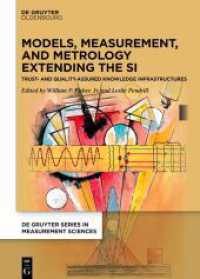Description
(Text)
A turnaround in the way we convert and consume energy is the key to successful climate change mitigation. Taking a micro-economic perspective, in order to put the necessary changes into practice corporations in the energy sector need not only have a long-term vision of the developments necessary up to the year 2050. They also have to understand the impacts these developments will have on the firm's competitiveness in short- and medium-term. Does this cause a dilemma? At least this challenge is not addressed in classical strategic management literature. The book at hand shows that sustainable development is about to become a central element of strategic management and corporate decision-making. However, classical trend-based strategy approaches do not address the systemic challenges that arise from the need for sustainable development, especially major emission reductions in the energy sector appropriately. A sustainability-oriented business strategy has to be based on a differentunderstanding of the corporate targets, the strategic decision-making process and the role of the firm within its natural and societal environment. The author shows how corporations can engage in such a target-oriented strategy discussion by using strategic backcasting as a tool to describe their long-term targets and derive necessary measures. These corporate "milestones" need to be prepared and pro-actively realised within a corridor that is formed by external "crossroad" decisions on the different levels of energy and climate policy. A case study clarifies the presented strategic backcasting approach for local utilities. It also highlights the strengths and weaknesses of the method.
(Author portrait)
Nicolai Herrmann (1981) studied energy and environmental management at Flensburg University and Griffith University (Australia). He finished his PhD thesis on strategic backcasting in cooperation with a German utility company. Since 2006 he works in the energy industry.








